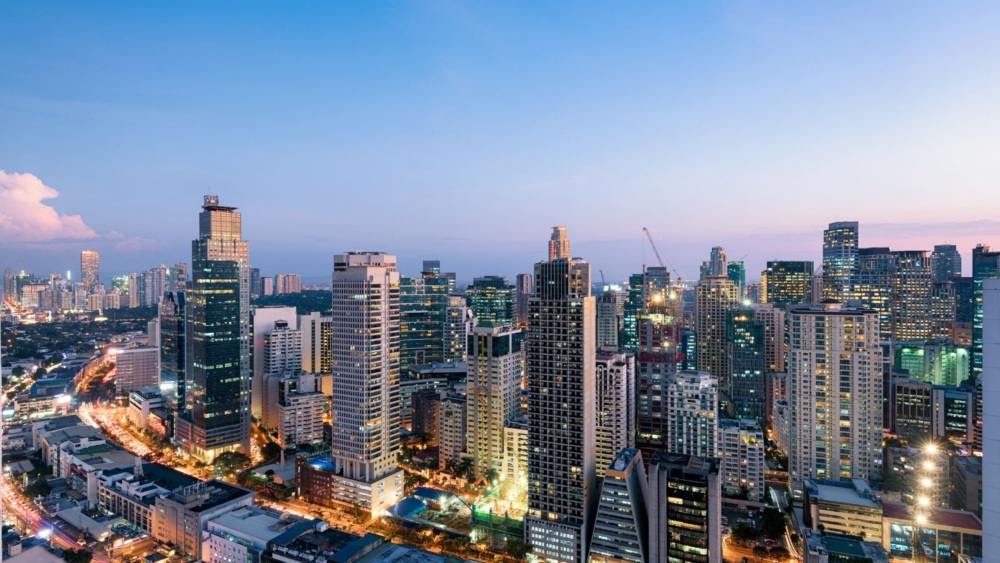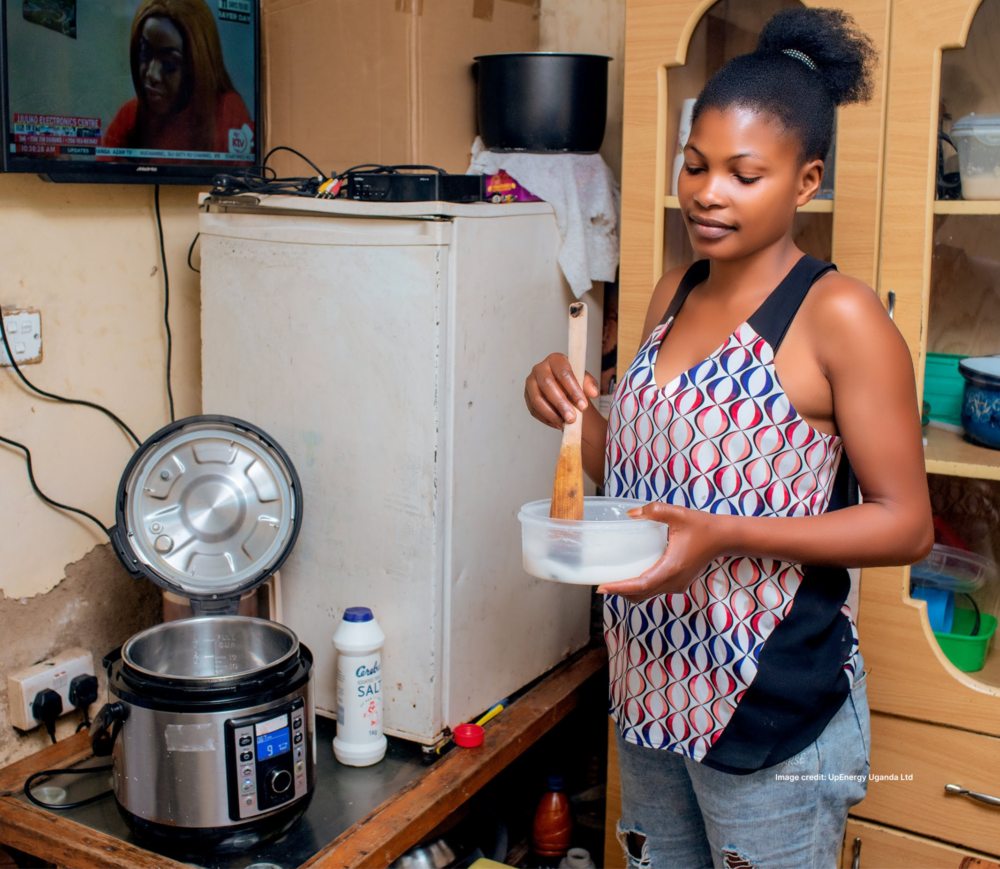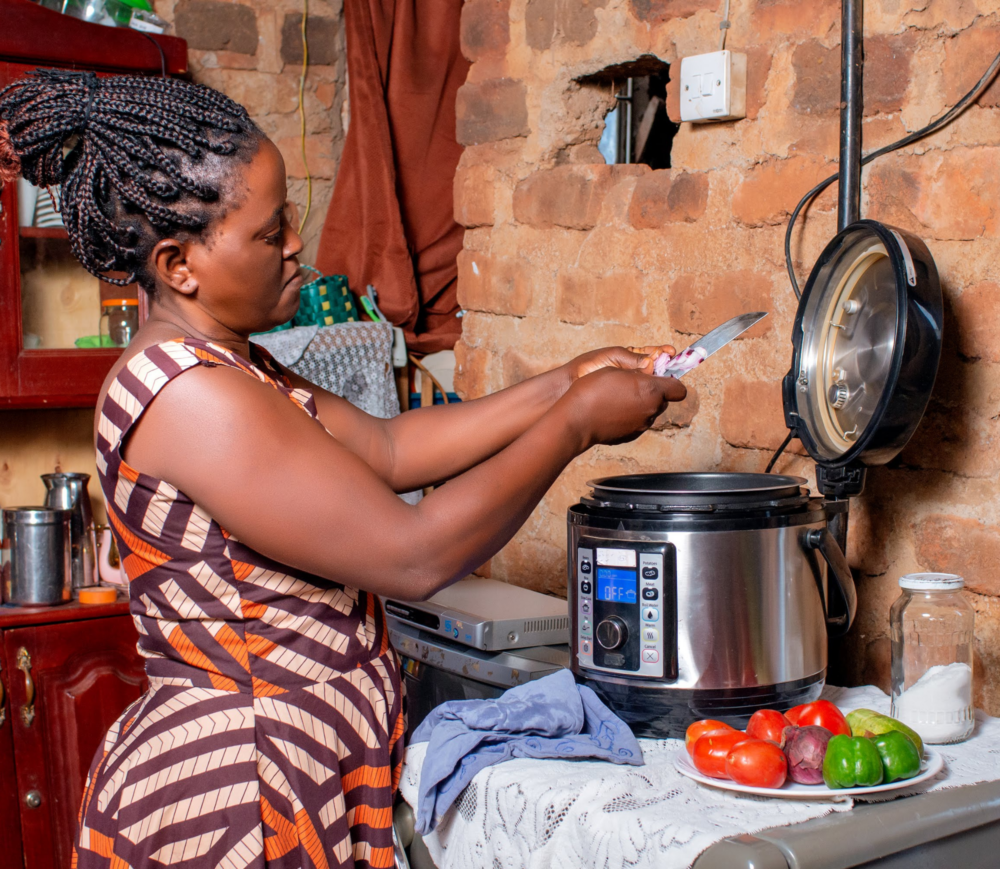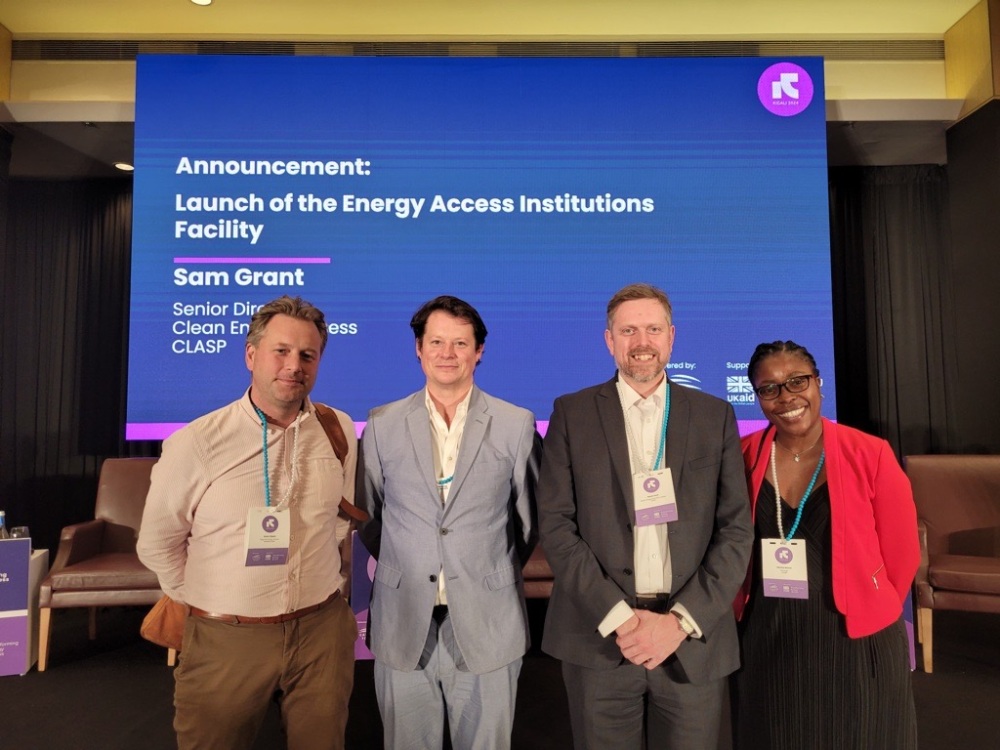Advancing Distributed Renewable Energy in India
At the South Asia Forum for Distributed Energy in New Delhi, India CLASP hosted discussions on the potential of distributed renewable energy for enhanced livelihoods and improved energy access in the country.
Last month, CLASP was at the 2023 South Asia Forum for Distributed Energy (SAFDE23), a GOGLA-organized event held in New Delhi, India. SAFDE23’s inaugural session opened with Shri Bhagwanth Khuba, Minister of State for New and Renewable Energy, Chemicals and Fertilizers who shared, “India has achieved household electrification across the country. We are on the right pathto achieving our ambitious national climate target of generating 500 GW through renewable energy by 2030”. The inaugural session was also addressed by Dr. Ajay Mathur, Director General – International Solar Alliance (ISA), Koen Peters, Executive Director – GOGLA, and Bishal Thapa, Senior Director – CLASP.
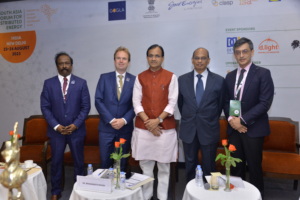
ISA’s Ajay Mathur highlighted the need for Distributed Renewable Energy (DRE) and rising demand, “Last year, 5.2 million solar energy kits sold during the second half of 2022, marking a 20% increase from the first half of the year.” He added, “the potential for DRE is very high but it is our responsibility to create an environment in which it thrives and the economic development of countries rises.”
CLASP’s Bishal Thapa expressed, “India is at the epicenter of a growing energy market and we are glad to join GOGLA in driving dialogue for integrated energy solutions. There is a big opportunity to mainstream distributed renewable energy through policy, market, and technology integration”.
On day 1, CLASP co-hosted a discussion with GOGLA on ‘Plugging the Gap: Partnerships and Innovations for the Weak Grid’, where the panel delved into challenges of a weak grid and the potential for the DRE industry, power distribution firms, financing, and technology to join forces.
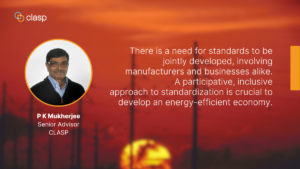 A key takeaway that emerged from the discussion was the need to de-risk financing provided for DRE and the necessity for adopting innovative financing solutions such as carbon financing. Additionally, CLASP’s PK Mukherjee also stressed on the need for participative policymaking.
A key takeaway that emerged from the discussion was the need to de-risk financing provided for DRE and the necessity for adopting innovative financing solutions such as carbon financing. Additionally, CLASP’s PK Mukherjee also stressed on the need for participative policymaking.
On day 2, a discussion hosted by CLASP, in partnership with EESL, highlighted the investment possibilities within the cold chain sector for the future of India’s agriculture. Despite 2020-21’s record horticulture output, inadequate storage led to 30% food wastage the same year. FY 2021-22 saw 10 million metric tons of post-harvest fruit and vegetable losses, valued at INR 60,000 crores (USD 7.2 billion), impacting farmers’ incomes and emissions. Vishal Kapoor, CEO – EESL noted that the organization is commited towards transforming India’s cold chain and the role EESL will play in catalyzing investments through demand aggregation, financing, and policies.
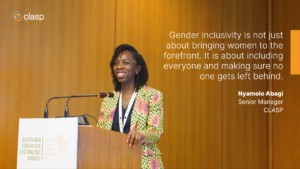
Finally, Nyamolo Abagi, CLASP’s Senior Manager for Kenya paneled a discussion on whether DRE is truly powering gender inclusion. Ensuring the inclusion of women and marginalized groups in a growing DRE market is pivotal to addressing the diverse needs of all individuals.
SAFDE23 stands as a testament to CLASP’s commitment to driving sustainable energy solutions through collaborative engagement. By addressing the challenges of weak grids, advocating for innovative financing, and promoting gender.


